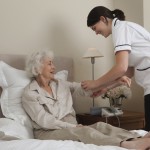When winter's icy grip takes hold, our bodies must work hard to stay warm. But sometimes, despite our best efforts, the cold can win, leading to a potentially life-threatening condition known as hypothermia. Hypothermia occurs when the body loses heat faster than it can produce it, causing a significant drop in core body temperature. This condition is more common in extremely cold environments, but it can happen even in moderately chilly weather. Understanding the signs of hypothermia and how to respond is crucial for staying safe during the winter months.
 The chilling effects of hypothermia:
The chilling effects of hypothermia:Hypothermia develops when the body's core temperature drops below 95 degrees Fahrenheit (35 degrees Celsius). It's a progressive condition with varying stages, each accompanied by specific symptoms:
Mild hypothermia: In the early stages, mild hypothermia can cause symptoms such as shivering, goosebumps, and cold, pale skin. The affected person may also experience confusion and difficulty with fine motor skills.
Moderate hypothermia: As hypothermia worsens, shivering may become more severe, and the individual's speech and movements can become slurred. They may have trouble thinking clearly and display signs of poor coordination.
Severe hypothermia: In the advanced stages of hypothermia, shivering may stop altogether, and the person's skin may turn blue or gray. They can experience extreme confusion, drowsiness, and even loss of consciousness. Breathing may slow down significantly, and the heart rate can become irregular or extremely slow.
Preventing hypothermia is essential, but if you suspect someone may be suffering from this condition, quick action is vital:
Get to a warm place: If you or someone else is experiencing symptoms of hypothermia, the first step is to move to a warmer environment as soon as possible.
Remove wet clothing: Wet clothing can accelerate heat loss. Remove wet garments and replace them with dry, warm layers.
Wrap up: If helping someone with hypothermia, cover them with blankets or warm clothing. Focus on warming the torso, head, and neck.
Warm, sweet liquids: Offer warm, non-alcoholic, and non-caffeinated beverages. Avoid alcohol, as it can lead to further heat loss.
Stay active: Light exercise can help generate body heat. Simple movements like wiggling fingers and toes can be helpful.
Seek medical help: In severe cases of hypothermia, or if there's no improvement, it's crucial to seek medical attention promptly.
Do not rub frostbitten skin: If frostbite is present, do not rub or massage the affected area, as it can cause further damage.
Hypothermia is a serious condition that demands immediate attention. Staying aware of the symptoms and knowing how to respond can make all the difference in ensuring safety during the cold months. Whether you're an outdoor enthusiast or simply venturing out into winter's chill, being prepared and vigilant can help you stay warm and avoid the cold's potentially dangerous consequences.
Don't hesitate to contact us at 343 309 5289 . We can help you choose the right establishment for you and assist you in your search.

Find a suitable senior residence